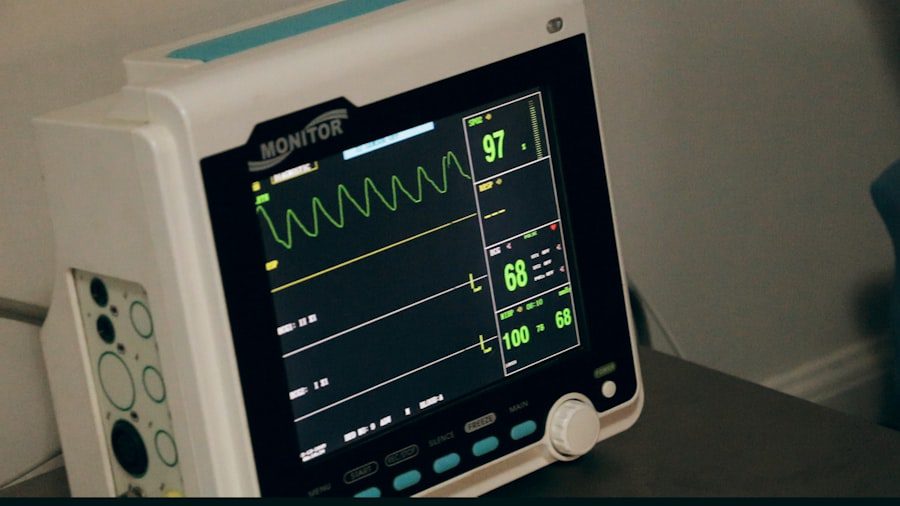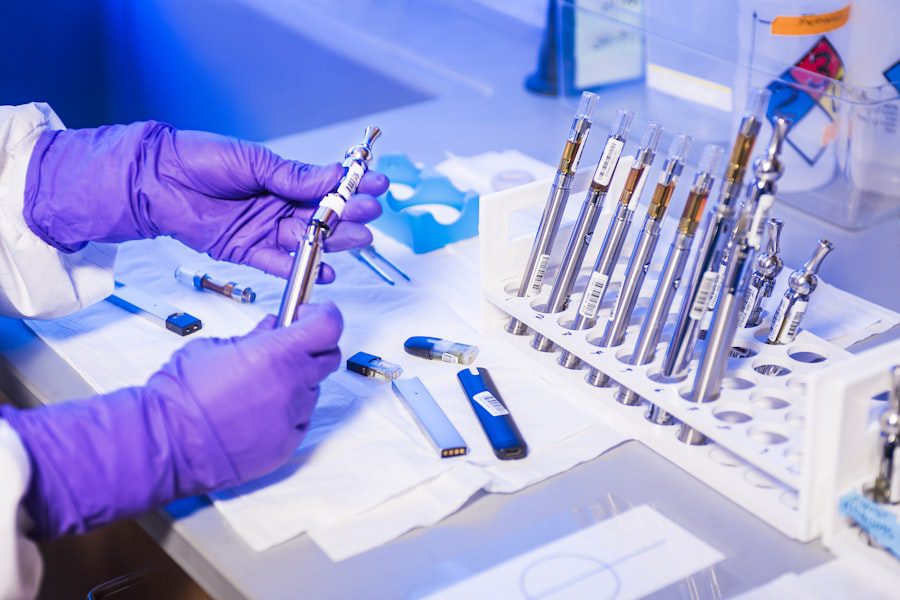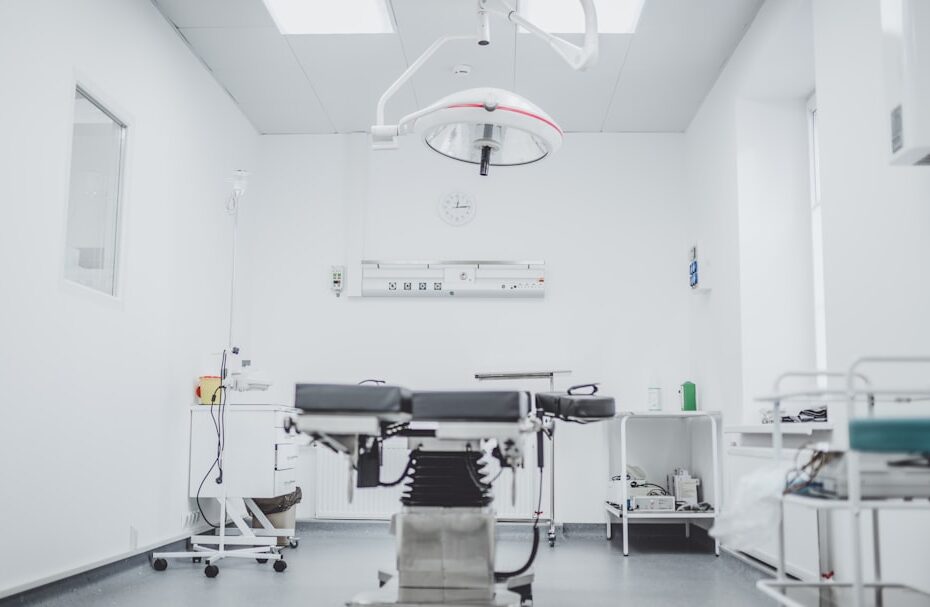Bowel cancer, also known as colorectal cancer, is a significant health concern that affects millions of people worldwide. It originates in the large intestine, which includes the colon and rectum. As you delve into the subject, it becomes clear that understanding the risk factors, symptoms, and stages of bowel cancer is crucial for early detection and effective treatment.
Recognizing these early signs can be pivotal in improving outcomes and survival rates. The symptoms of bowel cancer can vary widely, but common indicators include changes in bowel habits, unexplained weight loss, persistent abdominal discomfort, and blood in the stool.
If you experience any of these symptoms, it is essential to consult a healthcare professional promptly. The stages of bowel cancer range from localized tumors that can be surgically removed to advanced cases that may require more aggressive treatments. By familiarizing yourself with these aspects of bowel cancer, you empower yourself to take proactive steps toward your health.
Key Takeaways
- Bowel cancer is a common and potentially deadly disease that affects the colon and rectum.
- Screening for bowel cancer is crucial for early detection and improved treatment outcomes.
- A colonoscopy is a procedure that allows doctors to examine the inside of the colon and rectum for signs of cancer or other abnormalities.
- Advancements in colonoscopy technology, such as high-definition imaging and robotic assistance, have improved the accuracy and safety of the procedure.
- Robotic surgery is an emerging treatment option for bowel cancer, offering potential benefits such as smaller incisions and faster recovery times.
The Importance of Screening for Bowel Cancer
Screening for bowel cancer is a vital component of preventive healthcare. Early detection significantly increases the chances of successful treatment and can even lead to a complete cure. As you consider your health, it’s important to recognize that many individuals with bowel cancer may not exhibit symptoms in the early stages.
This is where screening plays a crucial role; it allows for the identification of potential issues before they escalate into more serious conditions. Regular screening can help detect precancerous polyps, which can be removed before they develop into cancer. The recommended age for starting screening varies by country and individual risk factors, but generally, it begins around the age of 45 or 50.
By participating in screening programs, you not only protect your own health but also contribute to broader public health efforts aimed at reducing the incidence and mortality associated with bowel cancer.
What is a Colonoscopy?

A colonoscopy is a medical procedure that allows doctors to examine the inner lining of your large intestine using a flexible tube equipped with a camera. This procedure is often recommended as a primary method for screening for bowel cancer. During a colonoscopy, the doctor can visualize any abnormalities, such as polyps or tumors, and may even remove polyps during the same session.
Understanding what a colonoscopy entails can help alleviate any anxiety you may have about the procedure. The preparation for a colonoscopy typically involves dietary restrictions and the use of laxatives to ensure that your colon is clear for examination. While the thought of undergoing this procedure may seem daunting, many find that the actual experience is less uncomfortable than anticipated.
Sedation is usually provided to help you relax during the procedure, allowing for a more comfortable experience overall. Knowing what to expect can make the process feel less intimidating and more manageable.
Advancements in Colonoscopy Technology
In recent years, advancements in colonoscopy technology have significantly improved both the effectiveness and comfort of the procedure. Innovations such as high-definition imaging and narrow-band imaging allow for enhanced visualization of the colon’s lining, making it easier for doctors to detect abnormalities that may have previously gone unnoticed. These technological improvements not only increase the accuracy of diagnoses but also enhance the overall patient experience.
Additionally, new tools and techniques are being developed to make colonoscopy procedures quicker and less invasive. For instance, some facilities are now utilizing artificial intelligence to assist in identifying polyps during examinations. This integration of technology not only aids physicians in making more accurate assessments but also reduces the likelihood of human error.
As you consider undergoing a colonoscopy, it’s reassuring to know that these advancements are continually being made to improve patient outcomes.
Robotic Surgery for Bowel Cancer Treatment
Robotic surgery has emerged as a groundbreaking option for treating bowel cancer, offering several advantages over traditional surgical methods. This minimally invasive approach utilizes robotic systems to assist surgeons in performing complex procedures with enhanced precision and control. If you find yourself facing surgery for bowel cancer, understanding the benefits of robotic surgery can provide you with valuable insights into your treatment options.
One of the primary advantages of robotic surgery is its ability to minimize scarring and reduce recovery time compared to open surgery. The robotic instruments allow for smaller incisions, which can lead to less postoperative pain and a quicker return to normal activities. Furthermore, robotic surgery often results in shorter hospital stays and lower rates of complications.
As you explore your treatment options, discussing robotic surgery with your healthcare provider may reveal an effective path forward that aligns with your health goals.
The Process of Bowel Cancer Screening with Colonoscopy

The process of bowel cancer screening through colonoscopy typically begins with an initial consultation with your healthcare provider. During this appointment, you will discuss your medical history, any symptoms you may be experiencing, and your family history regarding bowel cancer. This information helps your doctor determine whether a colonoscopy is appropriate for you and when it should be scheduled.
Once your appointment is set, preparation becomes key to ensuring a successful procedure. You will receive specific instructions regarding dietary changes and bowel preparation solutions to cleanse your colon thoroughly. On the day of the procedure, you will arrive at the medical facility where you will be greeted by healthcare professionals who will guide you through each step.
After sedation is administered, the doctor will insert the colonoscope and begin examining your colon. The entire process usually takes about 30 minutes to an hour, after which you will be monitored until the sedation wears off before being discharged.
Risks and Benefits of Colonoscopy for Bowel Cancer Screening
Like any medical procedure, colonoscopy comes with its own set of risks and benefits that you should consider before undergoing screening. On one hand, the benefits are substantial; colonoscopy is one of the most effective methods for detecting bowel cancer early when it is most treatable.
However, it’s essential to be aware of potential risks associated with colonoscopy as well. These may include bleeding, infection, or perforation of the colon wall—though such complications are rare. Understanding both sides allows you to make an informed decision about whether to proceed with screening.
Engaging in an open dialogue with your healthcare provider can help clarify any concerns you may have and ensure that you feel comfortable moving forward.
The Future of Bowel Cancer Screening and Colonoscopy Technology
As research continues to evolve, the future of bowel cancer screening and colonoscopy technology looks promising. Innovations such as virtual colonoscopy and capsule endoscopy are being explored as alternatives or complements to traditional methods. Virtual colonoscopy uses imaging technology to create detailed pictures of the colon without requiring invasive procedures, while capsule endoscopy involves swallowing a small camera that captures images as it travels through your digestive system.
Moreover, ongoing advancements in artificial intelligence are expected to enhance diagnostic accuracy further by assisting physicians in identifying polyps and other abnormalities more effectively. As these technologies develop, they hold the potential to make screening more accessible and less intimidating for patients like you. Staying informed about these advancements can empower you to take charge of your health and advocate for the best possible care options available.
In conclusion, understanding bowel cancer and its screening methods is essential for maintaining your health and well-being. By familiarizing yourself with procedures like colonoscopy and staying informed about advancements in technology and treatment options, you position yourself to make educated decisions regarding your health care journey. Regular screenings can save lives by detecting issues early on; therefore, prioritizing your health through awareness and proactive measures is crucial in combating this prevalent disease.
If you are interested in learning more about the future of robotic surgery, check out this article on Vanash Patel’s website. Robotic surgery is a rapidly advancing field that is revolutionizing the way many medical procedures are performed. This technology has the potential to greatly improve patient outcomes and recovery times.
FAQs
What is a colonoscopy?
A colonoscopy is a procedure that allows a doctor to examine the inside of the large intestine (colon) for any abnormalities, such as polyps or signs of cancer.
Why is a colonoscopy used for bowel cancer screening?
A colonoscopy is used for bowel cancer screening because it can detect and remove precancerous polyps, as well as identify early signs of bowel cancer.
At what age should individuals start getting regular colonoscopies for bowel cancer screening?
The age at which individuals should start getting regular colonoscopies for bowel cancer screening can vary depending on factors such as family history and personal risk factors. In general, screening is recommended to start at age 50 for average-risk individuals.
How often should individuals get a colonoscopy for bowel cancer screening?
The frequency of colonoscopies for bowel cancer screening can vary depending on individual risk factors and the results of previous screenings. In general, individuals may be advised to have a colonoscopy every 10 years if no abnormalities are found.
What are the potential risks of a colonoscopy?
Potential risks of a colonoscopy include bleeding, perforation of the colon, and adverse reactions to sedation. However, these risks are rare and the benefits of early cancer detection often outweigh the potential risks.
How should individuals prepare for a colonoscopy?
Individuals typically need to follow a special diet and take laxatives to cleanse the colon before a colonoscopy. They may also need to stop taking certain medications and arrange for someone to drive them home after the procedure.
